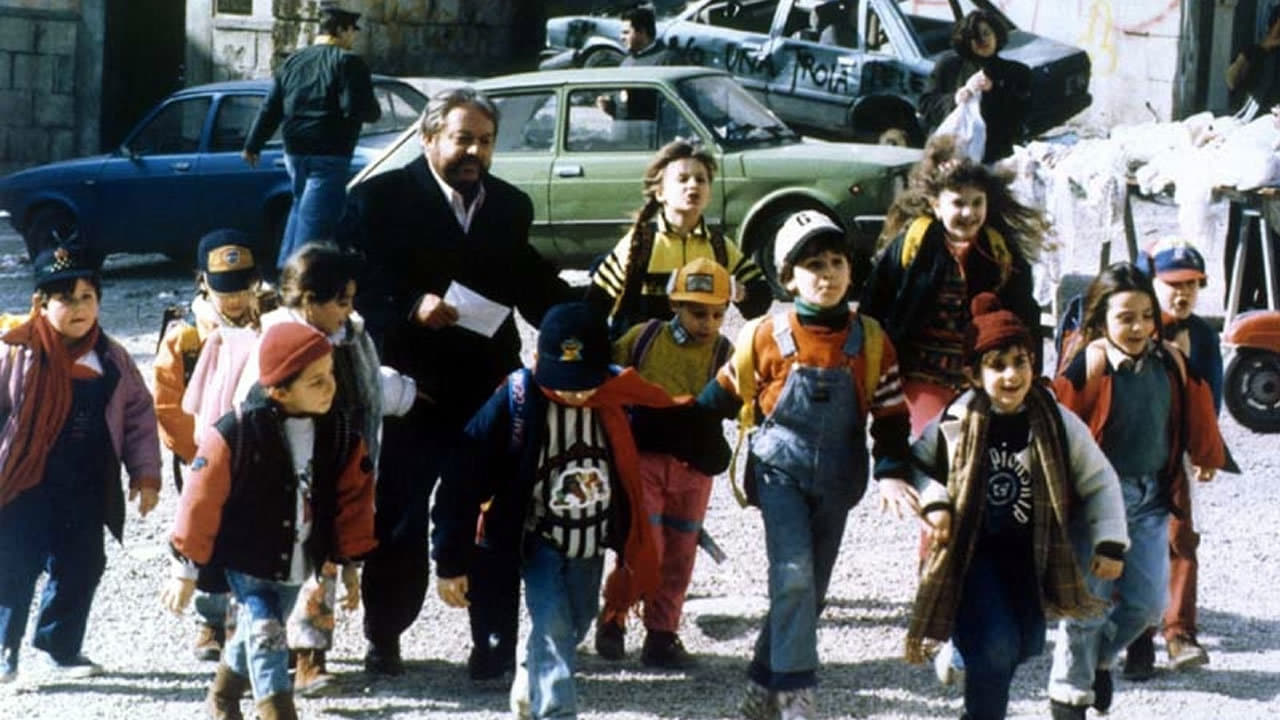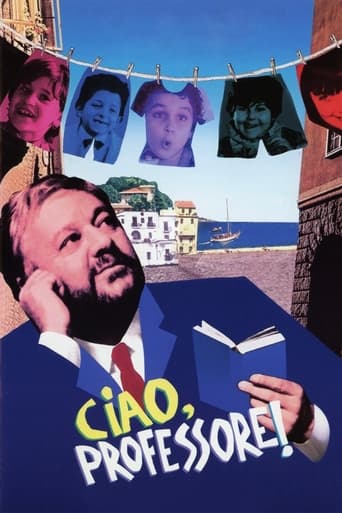

Yes, there's the exploration of the teacher - pupil relationship, the North versus the South (Italian-style) dichotomy, the familiar refrain of an elder imparting wisdom upon youth. But what I find most fascinating about the movie is the fact that the kids are, in many ways, more experienced, or understanding of real world survival than the professor. And so, in a sense, throughout the movie, they seem to be teaching him what life is about, too. I find it quite satisfying, then, that in the end, the professor and his pupils find a compromise in their morals and behavior that mutually benefits them and their relationship. The scene of the teacher and the kids speedily absconding on their bikes perfectly symbolizes the professor and his pupils' transformations.
... View MoreLina Wertmuller's 1992 film "Ciao professore" is a sunny comedy with a social conscience, which is this director's trademark. The conflict in ideology between the Italian North and South comes to a head in this sunny comedy that pointed out to the poverty of some of the towns in the area, especially around Naples.Marco Tullio Sperelle, the teacher at the center of the story, has made a serious mistake. Instead of getting his transfer to Corsano, he is sent instead to teach in Corzano, a poor town by the sea. This is a place that lives in poverty and children are sent to work at a tender age. To Marco's surprise, on his first day at the school, he meets only three children in his third grade class. Why only three? Well, he is told the others are working! Marco goes out and finds them and brings them back to where they really belong, but most of them resent the intrusion and the way it will affect their families.Life is not easy in Corzano. From a young age the children are exposed to the wars between the organized crime, the Camorra, the local mafia, as they struggle for domination and extortion. Raffaele, one of Marco's students is a tough guy who challenges the teacher's authority. Marco's response is violent, something he later feels sorry about. He sets out to win the hearts and minds, but he had put his papers to be transfer to the right area. He can't stop the bureaucracy, but the students come around because they discover a kindred soul who has done everything to help them.The film is made better by Paolo Villaggio's work. His Marco Tullio Sperelle is perfect. He shows great affinity for his character. Lina Wertmuller and her mostly non professional cast do a wonderful job in taking us to see how the other half lives as they struggle for everyday things.
... View MoreMany of Lina Wertmuller's movies (such as "Seven Beauties" and "Swept Away") have dealt with the North-South divide in Italy. "Io speriamo che me la cavo" (called "Ciao, Professore!" in English) has Northern Italian professor Marco Sperelli (Paolo Villaggio) getting sent to a destitute town near Naples and having to get used to being a teacher there, especially with the presence of a young hoodlum in the school. Maybe it's not Wertmuller's greatest movie, but it is something that I would recommend - although I should warn you, there's some stuff here that might be a little shocking to find in a movie dealing with children. Buon viaggio!
... View MoreThis movie is great for those who:-love Italian culture-love Italian kids-love southern Italian dialectThis movie haunted me at movie stores since I became interested in foreign films 4 or 5 years ago. Glaring and obnoxious as its cover is, I finally rented it. All in all a decent comedy.In my ratings scale, comedies are graded more on their humor than their story line. In the case of this movie, that is a good thing. A weak story of coincidence, a northern italian professor ends up teaching in the chaos that is Italy southern (Napoli).I loved the movie because I understand italian well enough to not read the satisfactory subtitles and because the kids were luminous compared to the usual fumbling kiddie actors; these ones were adorable and their lines hilarious.Other notes: There is a lot of vulgarity in this movie, as is typical in the south. The lead, a likeable Paolo Villaggio, plays foil for the wild kids. The story is simple and dismissable. The cinematography is standard, blessed by the wondrous ambient that is the dilapidated South. A normally celebrated Wertmuller seems to have chosen an easy project here. The movie was produced by media mogul Silvio Berlusconi (vaffa!).Ultimately it's a movie to waste 90 min, but it was enjoyable and will certainly rouse a smile when I see it on the shelves next time.6/10, JCC
... View More